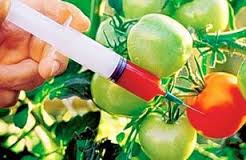
Nature of work
The main task a food technologist must do is to ensure that food products are produced safely, legally and are of the quality claimed.Food technologist can get involved in developing the manufacturing processes and recipes of food and drink products. He/she may work on existing and newly discovered ingredients and technologies to invent new recipes and concepts, as well as modify foods to create, for example, fat-free products and ready meals. He/she often works closely with the product development teams to help deliver factory ready recipes based on the development kitchen samples.
On the other hand, some food technologists are involved in conducting experiments and producing sample products, as well as designing the processes and machinery for making products with a consistent flavour, colour and texture in large quantities. This must be done within a strict and ever-changing regulatory framework around the treatment of foodstuffs. For this reason, technologists are responsible for keeping up-to-date with relevant legislation.
Environment of work
A candidate should know that his working hours in the retail and public sector are typically from 9am to 5pm, Monday to Friday, possibly with some extra hours. However, shift work is usual in the private sector (for example in factories) up until management level, and sometimes it may be required when running production trials, where auditing hours are according to the site production times. Flexibility is necessary but where time is taken out of hours a candidate, in most cases, be given the time back.The environment of work is usually carried out in factories but may also take place in an office, laboratory or kitchen. If a candidate has extensive experience, he will get some opportunities in consultancy, but these are limited, as are opportunities for self-employment. Part-time work and flexible hours may be available.
Hygiene is very important and the dress code is appropriate to the function, which is normally smart/casual for the office or protective clothing with headwear for laboratory, kitchen and factory work.
Hopefully a candidate likes travelling because extensive travel within the working day may be required if he works in retail or for a local authority.
Professional life
In larger organisations, promotion is to more senior technologist posts with greater management responsibility for staff and resources, which eventually leading to management posts with strategic responsibility for related areas. In case a candidate desires to gain promotion or to increase salary level, it may be necessary to move between employers. In some cases, this may require relocation. A typical career path might be:development technologist;
senior development technologist;
project leader (lead food technologist);
new product development manager.
An alternative would be to specialise in a particular area, such as quality or process management.
It is common for food technologist to move to other business areas, such as technology, business development or sales, where his specialist knowledge will be a real advantage. Whilst larger companies offer more opportunity for cross-functional moves, small and medium-sized companies generally offer greater responsibility earlier and the chance to gain skills and experience across the range of business areas quickly. The typical salary usually starts from 35000 SYP.
Getting the job
When a person likes to become a food technologist, a food-related degree is the preferred qualification for entry into this area of work. The following subjects in particular may improve a person's chances for accessing to this career :food science/technology;
food, nutrition and health;
food safety and quality management.
Other relevant science subjects include physical, mathematical, life and medical science. In particular, the following subjects may increase a person's chances:
nutrition;
microbiology;
applied chemistry.
However, if a candidate carries an unrelated degree, postgraduate study in areas such as food quality management may significantly increase his chances of entry.
Skills
Besides academic degree a candidate needs to show evidence of a genuine interest in science and how it is applied to food and cookery, high standards of cleanliness and the ability to adhere to strict hygiene rules, in addition to excellent attention to detail. Also, he/she should have strong written and verbal communication skills, people skills, numeracy skills, and problem-solving skills. Moreover, time management, organizational skills, team working skills, a flexible approach to working, and leadership qualities are necessary for applying for this position. Also, there are other skills are required such as an awareness of the consumer market, commitment, enthusiasm and motivation. A person who would like to apply for this career should be sociable, for this work may involve building relationships with suppliers and customers, in addition to ensuring products are profitable. Sources and references
For further information on what is included in this file, a candidate can visit the following websites: www.ajol.info/index.php/jafs, Journal of Agriculture and Food Sciences
pubs.acs.org/journal/jafcau, Journal of Agricultural and Food Chemistry
Arab Standard Classification of Occupations, 2008, Ed. Arab Labor Organization
